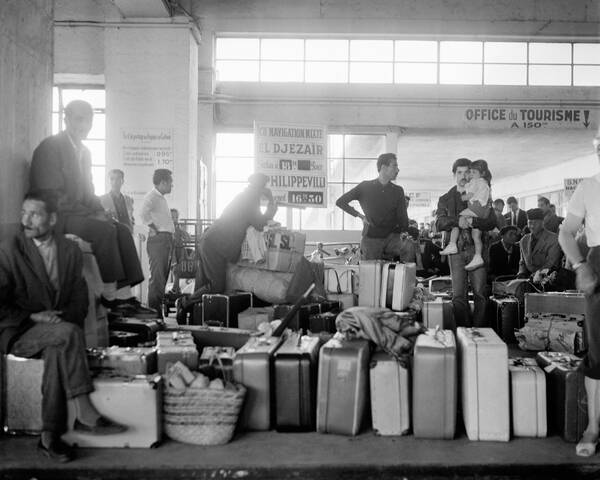You are now entering the Jewish Currents archive.
Myron Perlman, Z”L, a Founder of the Chutzpah Collective
I met Myron not so long ago, this past May Day, in the cold rain in Chicago’s Union Square. My friends and I had made Yiddish signs with labor slogans. He told me he was a founder of a political collective called “Chutzpah” — I had never heard of it — and that at my age, in his mid-twenties, he had interviewed members of the Jewish Labor Bund. I shook with excitement about that. We exchanged contacts, and the next week I found a box of Chutzpah newspapers in an archive. Myron’s face, drawn in pen, hovered above his article about Jewish hair. I did my best to read all of the issues, a decade of underground Jewish history in delicate newsprint.
That July, I sat across from Myron and his friend Miriam in Cafe Selmarie, where the clatter of plates and knives mixes with many conversations. I bent in to hear the history of this small group of Chicago Jews, who had gone to Israel and Palestine in 1977 and interviewed Palestinian radical journalist Ramonda Tawil (author of My Country, My Prison) and liberal Zionist Simha Flapan (editor of New Outlook magazine). Myron recounted his days at University of Illinois at Chicago, where he had arranged for a young and charismatic Black Panther leader named Fred Hampton to speak. Less than a year later, Hampton was in his bed murdered by the FBI and Chicago Police. Myron remembered other Black Panthers whom he knew as friends. He remembered the 1968 Democratic National Convention protests as a police riot against the demonstrators.
He was curious about me and how I had been radicalized. He had worked for decades as a union carpenter and was using his retirement to read radical literature. He told me he had a much better understanding of Marx now then he had in the 1960s and ’70s. I took notes furiously on my laptop.
He slid me two copies of Chutzpah that I had requested. “I want these back,” he said.
Myron’s life and work led me to Aliza Becker, who for three years had been interviewing Jewish Americans involved in peace activism in Israel and Palestine. The second time I met him was in her apartment, which had at one time hosted almost all members of Chutzpah and Am Chai, the independent religious community that intersected with the leftist collective. A few weeks later, I was working for Aliza, editing transcriptions and formatting the archive of her hundreds of interviews. In late summer I crunched away at work while my phone buzzed with news from my friend, Eli, who was a street medic at the Charlottesville anti-white supremacy demonstrations.
The week following I ran into Myron at a rally against white supremacy at Federal Plaza in downtown. It had been there in 1978 that Myron had counterprotested neo-Nazis. I made a sign in Yiddish, “mir veyln zei iberlebn,” we will outlive them. We held it together and got our photograph taken.
Once I found myself in Miriam’s apartment, flipping through a dense stack of Chutpzah newspapers.
“Myron will never tell you, but he was the heart and soul of the group,” she told me.
My bag was heavy with the materials.
Meeting Myron revealed to me that I had a history, that as a young Jewish radical in Chicago, I was part of a tradition.

His humility, straightforwardness and patience are like a guiding light. For the short, intense period that I was fortunate to know him, my life was changed. I loved his emails in my inbox, sharing articles and names of friends who he wanted to introduce me to. I will never forget the squeeze of joy I felt when he responded to my writing about Chutzpah with the words “very good.”
Myron will always live. He is wherever Jews are struggling to know who are they are. He is wherever people are struggling for justice.
Isaac Brosilow is a contributing writer for Jewish Currents and an independent researcher from Chicago, currently based in Brooklyn. His work has appeared in Protocols and Graylit.

